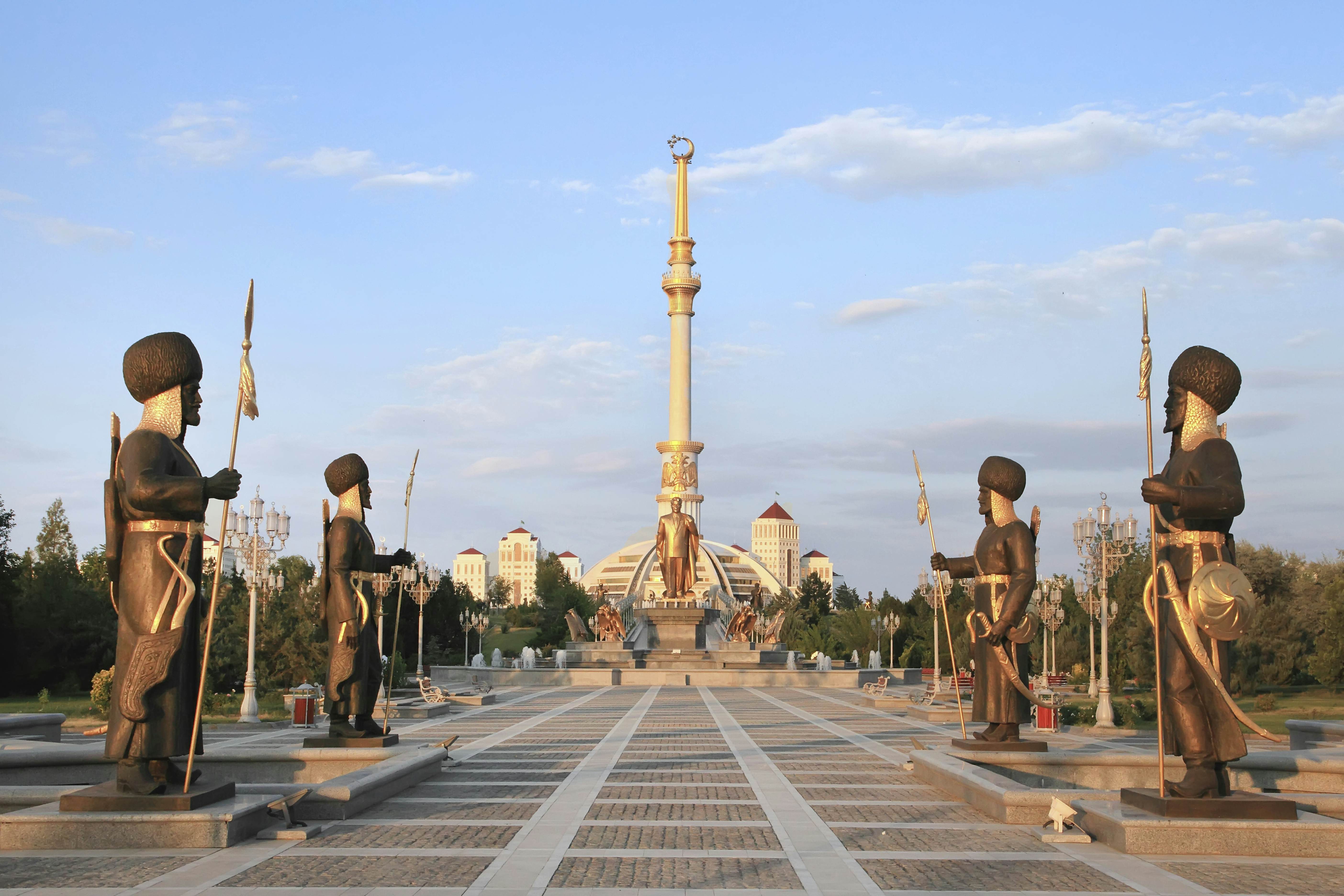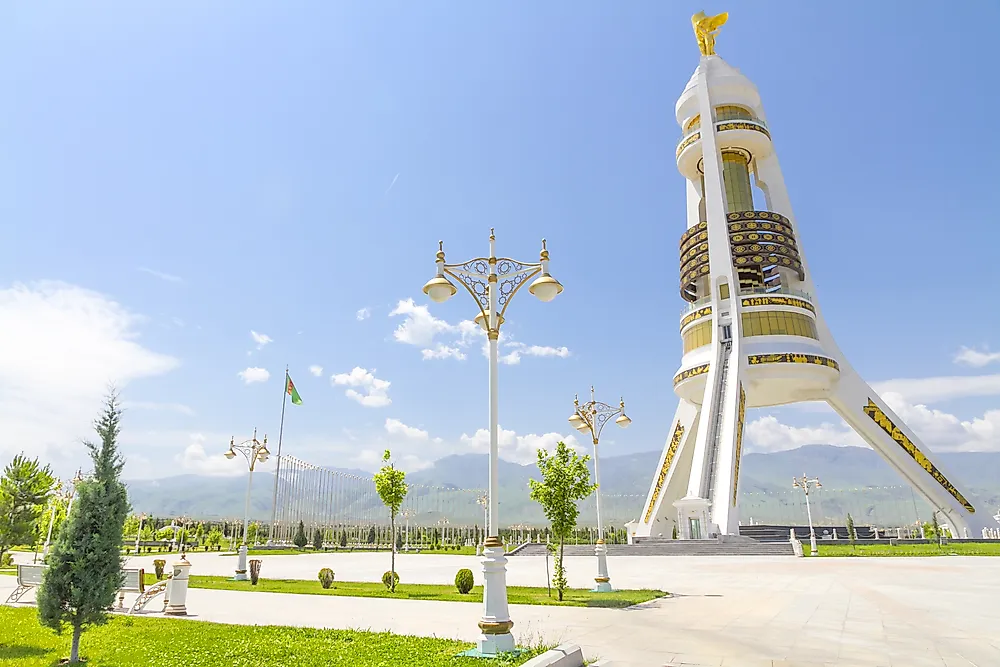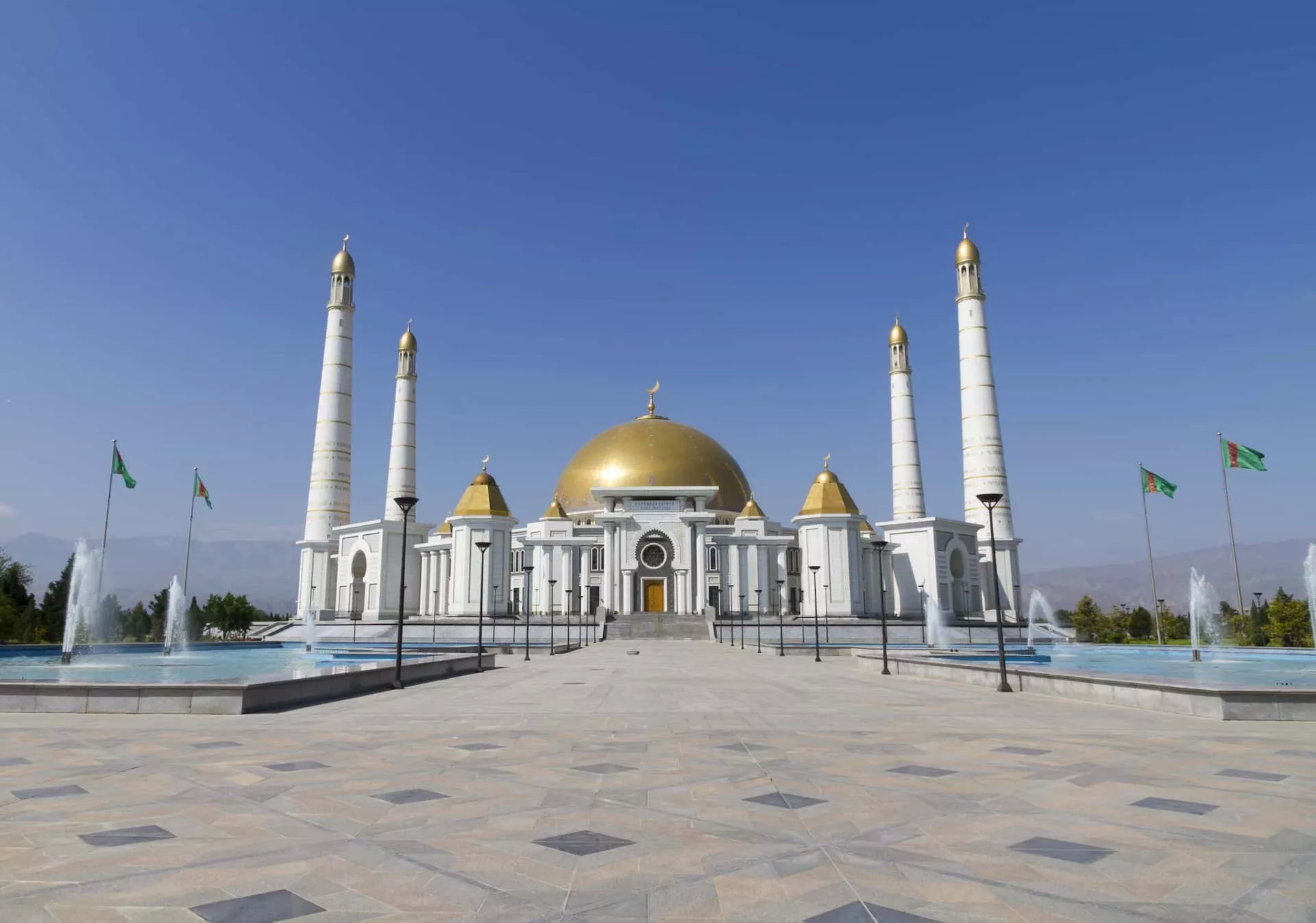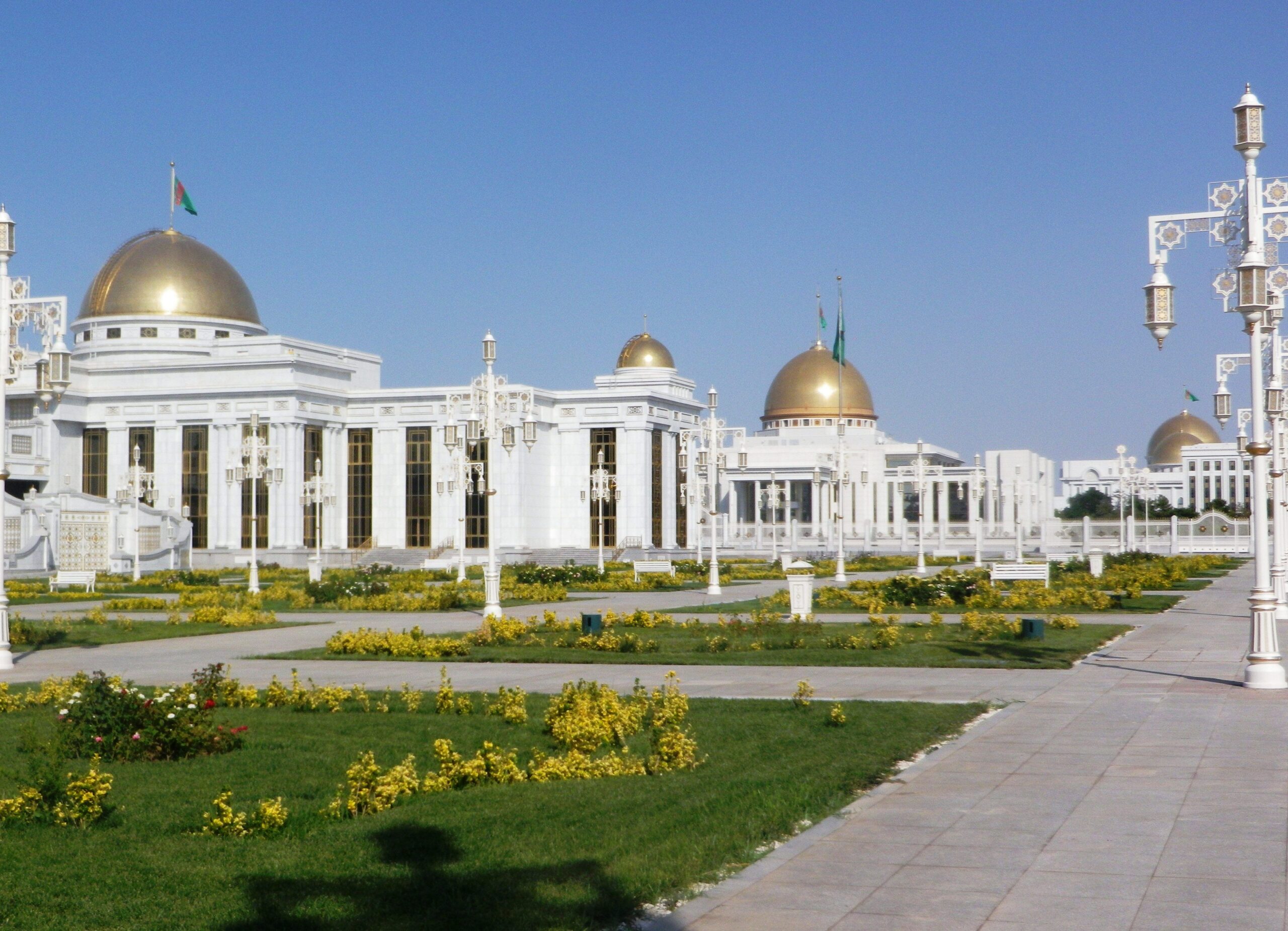Incorporate A Company In Turkmenistan In 2025

Turkmenistan, located in Central Asia, is a nation rich in history, culture, and natural resources. With a population of approximately 6 million, the country is known for its vast deserts, particularly the Karakum Desert, and its historical significance along the ancient Silk Road.
Standard of Living in Turkmenistan
Turkmenistan offers a unique standard of living shaped by its economic structure and government policies. The state provides heavily subsidised utilities, such as electricity, gas, and water, which significantly reduce living expenses for residents. Healthcare and education are also subsidised, with government efforts to maintain basic services accessible to the population.

However, the country faces challenges such as limited job diversity and economic disparity. Many people work in agriculture, government roles, or the energy sector. The rural-urban divide is noticeable, with urban areas like Ashgabat offering better infrastructure and amenities compared to rural regions.
Inflation and currency devaluation in recent years have impacted purchasing power, making imported goods more expensive. Nonetheless, the state’s subsidies and welfare programs mitigate the impact of economic difficulties on the average citizen.
Personal Taxes in Turkmenistan
Turkmenistan has a relatively straightforward personal taxation system, which is designed to support the state’s revenue without imposing excessive burdens on individual taxpayers.
- Income Tax:
Residents are subject to a flat income tax rate of 10% on their earnings. This rate applies to salaries, wages, and other personal income sources. For non-residents, a higher tax rate of 15% applies to income earned within Turkmenistan. - Tax Deductions:
Certain deductions and exemptions are available, particularly for low-income earners and individuals with dependent, reducing the overall tax burden.
Turkmenistan’s personal tax rates are considered moderate in comparison to global standards, reflecting its government’s focus on maintaining affordability for citizens.
Corporate Taxes in Turkmenistan
Turkmenistan’s corporate tax framework is structured to leverage its energy-rich economy while providing opportunities for businesses across various sectors.
- Corporate Income Tax:
Domestic companies are subject to a corporate tax rate of 8%. This rate applies to most types of business income, making it one of the lowest in the region. For foreign companies operating within Turkmenistan, the rate is slightly higher, at 20%. - Natural Resource Tax:
Companies involved in the extraction of natural resources, such as oil and natural gas, are subject to additional taxes and royalties. These rates vary depending on the type and volume of resources extracted. - Incentives for Foreign Investment:
The government provides tax incentives to attract foreign investment, particularly in the energy, infrastructure, and manufacturing sectors. These include tax holidays and exemptions for approved projects.
Major Industries in Turkmenistan

Turkmenistan, situated in Central Asia, is rich in natural resources, with its economy heavily reliant on its vast reserves of oil and natural gas. The country’s industries are shaped by its resource wealth, state-led economic policies, and limited integration into global markets.
- Oil and Natural Gas
Turkmenistan holds the fourth-largest natural gas reserves in the world, making the energy sector the backbone of its economy. The country exports significant amounts of gas to countries like China, Russia, and Iran. Major projects, such as the Turkmenistan-Afghanistan-Pakistan-India (TAPI) pipeline, highlight the sector’s importance to regional energy security. - Agriculture
Agriculture is the second-largest sector in Turkmenistan, employing a significant portion of the population. The country is a major producer of cotton, often referred to as “white gold,” which is both a key export and a critical input for the domestic textile industry. Wheat and fruits are also important agricultural products. - Textiles
Leveraging its cotton production, Turkmenistan has developed a robust textile industry, producing fabrics, clothing, and home furnishings. The government has invested in modernizing textile manufacturing to boost exports. - Construction and Infrastructure
The government has prioritized infrastructure development, including roads, railways, and urban projects. Ashgabat, the capital, is known for its grand marble-clad buildings and modern architecture, showcasing the industry’s scale. - Tourism
Although underdeveloped, tourism is an emerging sector. Historical sites, such as the ancient city of Merv and the Darvaza Gas Crater, attract visitors. The government aims to promote eco-tourism and cultural tourism as part of its diversification efforts.
Inflation and Cost of Living in Turkmenistan
Inflation and the cost of living in Turkmenistan are influenced by its controlled economy, reliance on imports, and state subsidies.
- Inflation
Turkmenistan has experienced fluctuating inflation rates, often driven by global energy prices and currency devaluation. The government controls prices for essentials like bread, fuel, and utilities to mitigate the impact on citizens. - Cost of Living
- Housing: Rental costs vary significantly. In Ashgabat, a one-bedroom apartment can cost $200–$500 per month, while rural areas are more affordable.
- Utilities: Subsidized gas, electricity, and water make utilities exceptionally cheap compared to global standards.
- Food and Groceries: Local produce is affordable, but imported goods are expensive due to high import duties.
- Transportation: Public transport is extremely inexpensive, with buses and shared taxis costing a fraction of what they would in other countries.
Property Tax, Services, and Sales Tax in Turkmenistan
- Property Tax
Property tax in Turkmenistan is levied on the market value of residential and commercial real estate. The rates vary depending on the property type, location, and usage. Owners are responsible for annual payments. - Other Taxes
- Land Tax: Levied on agricultural and urban landowners.
- Excise Duties: Applied to specific goods, including alcohol and tobacco.
- Customs Duties: High tariffs on imported goods to encourage local production.
Types of Business Entities in Turkmenistan
Entrepreneurs looking to establish a business in Turkmenistan can choose from several types of entities:
- Sole Proprietorship
The simplest form of business, owned and managed by a single individual. It’s suitable for small-scale enterprises but offers no separation between personal and business liabilities. - Partnership
Partnerships involve two or more individuals or entities sharing ownership and responsibilities. They can be general or limited, depending on the liability arrangement. - Limited Liability Company (LLC)
LLCs are the most popular business structure for foreign investors due to their limited liability and flexibility. They require a minimum capital contribution and registration with the Ministry of Finance. - Joint-Stock Company (JSC)
These entities are designed for larger businesses and can issue shares to raise capital. They are subject to more stringent regulations. - Representative Office
Foreign companies can establish representative offices for non-commercial activities like market research and networking. - Branch Office
Branch offices are extensions of foreign companies and can engage in commercial activities but are subject to local taxation and regulations.
Licenses to Start a Business in Turkmenistan
Starting a business in Turkmenistan requires obtaining various licenses and permits:
- Business Registration
All businesses must register with the Ministry of Finance and Economic Affairs. The process includes submitting documentation such as a business plan, proof of capital, and shareholder details. - Sector-Specific Licenses
Certain industries, like energy, construction, and tourism, require additional sector-specific permits. These are issued by relevant government agencies. - Tax Registration
Companies must register with the tax authorities to obtain a Tax Identification Number (TIN). - Trade Licenses
Businesses involved in trade must secure licenses from the Ministry of Trade. - Employment Permits
If hiring foreign workers, businesses must obtain work permits for each employee.
Opportunities for Expats for Business Growth in Turkmenistan
Turkmenistan offers numerous opportunities for expatriates, particularly in sectors aligned with the government’s priorities:
- Energy and Natural Resources
Expats with expertise in energy exploration, drilling, or renewable technologies can benefit from the country’s abundant natural resources. - Agriculture and Agro-Processing
Opportunities exist for expats to introduce modern farming techniques, food processing technologies, and export-oriented agribusiness. - Infrastructure and Construction
The government’s focus on infrastructure development creates demand for skilled professionals and foreign companies in construction, engineering, and project management. - Tourism Development
Expats can invest in hotels, travel agencies, and eco-tourism initiatives to cater to the growing interest in Turkmenistan’s historical and natural sites. - Education and Training
There is a need for language training, vocational skills development, and professional courses, offering expats opportunities in education.
Citizenship for Expats in Turkmenistan
- Residency
Expats can apply for temporary or permanent residency, depending on their purpose of stay. Permanent residency requires a long-term commitment and sponsorship from a local entity. - Citizenship by Naturalisation
Citizenship is granted under strict conditions, including continuous residence for at least seven years, fluency in Turk men, and proof of financial stability. Turkmenistan does not recognize dual citizenship, requiring applicants to renounce their original nationality. - Investment-Based Residency
Significant investments in local businesses or real estate can facilitate residency applications, though pathways to citizenship through investment are limited.
Why Register a Company in Turkmenistan?
Turkmenistan, a Central Asian nation with vast natural resources, offers unique opportunities for entrepreneurs and investors. Registering a company in Turkmenistan can be a strategic move for several reasons:
- Rich Natural Resources
Turkmenistan holds one of the largest natural gas reserves globally, making it an attractive destination for energy companies. The government’s focus on expanding the energy sector presents lucrative opportunities for businesses involved in exploration, production, and energy infrastructure. - Strategic Location
Turkmenistan’s position at the crossroads of Europe, Asia, and the Middle East makes it a vital hub for trade and logistics. Companies involved in transport, export, and infrastructure development can leverage this strategic location. - Government Incentives
The government encourages foreign investment, particularly in priority sectors like energy, agriculture, construction, and tourism. Tax holidays, exemptions, and reduced tariffs are available to attract foreign businesses. - Infrastructure Development
Turkmenistan has prioritized modernization through infrastructure projects. Entrepreneurs in construction, engineering, and manufacturing can benefit from the government’s focus on development. - Emerging Markets
Turkmenistan’s underdeveloped retail, tourism, and service sectors offer significant potential for growth. Businesses entering these markets can tap into an expanding economy with minimal competition.
How to Register a Company in Turkmenistan
The process of registering a company in Turkmenistan involves several steps:
- Choose a Business Structure
Select the type of business entity that suits your needs, such as a sole proprietorship, partnership, limited liability company (LLC), or joint-stock company. Foreign companies can also establish representative or branch offices. - Reserve a Company Name
The company name must be unique and approved by the Ministry of Finance and Economic Affairs. - Prepare Required Documentation
The necessary documents include:- Articles of Incorporation or Association
- A business plan outlining the company’s goals and activities
- Identification and proof of residence for shareholders and directors
- Proof of initial capital
- Register with the Ministry of Finance and Economic Affairs
Submit the prepared documents to the ministry for review and approval. This step formalizes the company’s establishment. - Tax Registration
Obtain a Tax Identification Number (TIN) from the State Tax Service to comply with local tax regulations. - Obtain Licenses and Permits
Depending on the nature of your business, additional sector-specific licenses may be required. For example, energy companies need permits from the Ministry of Oil and Gas, while construction firms require approvals from relevant agencies. - Open a Bank Account
Establish a corporate bank account in a Turkmen bank to manage company finances.
Cost to Register a Business in Turkmenistan
The cost of registering a business in Turkmenistan varies depending on the business type, sector, and scale of operations. Typical expenses include:
- Registration Fees
The initial registration fee ranges from $500 to $1,500, depending on the company structure and scope of operations. - Licenses and Permits
Fees for sector-specific licenses can range from $1,000 to $10,000 annually. For example, energy companies may incur higher licensing costs. - Professional Services
Engaging legal and financial advisors to navigate the registration process may cost $1,000 to $5,000. - Initial Capital Requirements
Some business types, such as joint-stock companies, require a minimum capital investment. The exact amount depends on the industry and government regulations. - Ongoing Maintenance Costs
Annual fees for license renewals, tax filings, and compliance reports typically range from $500 to $2,000.
Relation with Other Countries of Turkmenistan
Turkmenistan maintains a policy of “positive neutrality,” allowing it to engage diplomatically with nations worldwide without taking sides in international conflicts. This approach has shaped its economic and trade relationships:
- Energy Exports
Turkmenistan exports natural gas to countries like China, Russia, and Iran, forming the cornerstone of its economic relations. The Turkmenistan-China pipeline, in particular, underscores its energy trade significance. - Regional Trade
As a member of the Commonwealth of Independent States (CIS), Turkmenistan engages in trade and economic cooperation with former Soviet republics. - Infrastructure Projects
Collaborations with neighboring countries like Kazakhstan, Uzbekistan, and Afghanistan focus on transportation infrastructure, such as railways and pipelines. - Economic Partnerships
Turkmenistan has signed bilateral agreements with countries like Turkey, Germany, and Japan to foster trade, investment, and technological exchange. - Limited Global Integration
Despite its resource wealth, Turkmenistan’s limited global integration and stringent policies have restricted its economic partnerships. However, efforts to diversify its trade partners are ongoing.
Other Taxes in Turkmenistan
In addition to corporate and personal taxes, businesses and individuals in Turkmenistan are subject to several other taxes:
- Value-Added Tax (VAT)
VAT is applied at a standard rate of 15% on most goods and services. Essential items like basic food products and healthcare services are exempt. - Customs Duties
High import duties are levied on goods to encourage domestic production. Rates vary depending on the type and origin of the imported goods. - Excise Taxes
Excise duties are imposed on specific products, such as alcohol, tobacco, and luxury goods. - Natural Resource Tax
Companies engaged in oil, gas, or mineral extraction are subject to resource taxes and royalties, calculated as a percentage of production or revenue. - Social Contributions
Employers must contribute to social security funds, covering pensions, healthcare, and unemployment benefits for employees.
Social Security in Turkmenistan
Turkmenistan offers a state-managed social security system aimed at providing financial support and basic services to its citizens. The government plays a central role in ensuring access to healthcare, pensions, and welfare programs:
- Pensions and Retirement Benefits
Citizens are entitled to retirement pensions funded through mandatory contributions by employees and employers. The pension system covers old age, disability, and survivors’ benefits. - Healthcare Services
Turkmenistan provides universal healthcare, with services subsidised by the government. Although healthcare infrastructure is underdeveloped in rural areas, urban centres like Ashgabat have better facilities. - Welfare Programs
Low-income families, people with disabilities, and children receive social assistance through targeted programs. Subsidised utilities, such as gas, electricity, and water, are key features of the government’s welfare efforts.
Weather, Climate, and Regional Safety
- Weather and Climate
Turkmenistan experiences an arid continental climate characterised by hot summers and cold winters:- Summers: Temperatures often exceed 40°C (104°F), especially in the desert regions like the Karakum Desert.
- Winters: Winters are relatively cold, with temperatures ranging from -6°C to 5°C (21°F to 41°F). Snowfall is rare but occurs occasionally in the northern regions.
- Rainfall: Annual precipitation is minimal, averaging 150 mm to 300 mm, with most rainfall occurring in spring.
- Regional Safety and Security
Turkmenistan is one of the safest countries in Central Asia due to its strict governance and low crime rates.- Crime: Violent crime is rare, and petty theft is uncommon, thanks to tight law enforcement.
- Political Stability: The government maintains firm control, ensuring a stable environment, though this comes with restrictions on political freedoms.
- Border Security: Turkmenistan shares borders with several nations, including Iran and Afghanistan. The government enforces strict border controls to ensure safety in these regions.
Passport Power of Turkmenistan
The Turkmen passport, while not among the most powerful globally, allows its holders to travel to several countries without requiring a visa or with visa-on-arrival access:
- Visa-Free Access
Turkmen citizens can travel visa-free to a limited number of countries, primarily within the Commonwealth of Independent States (CIS) such as Russia, Kazakhstan, and Uzbekistan. - Challenges in Mobility
Visa requirements for Turkmen citizens are stricter for Western and Asian countries, limiting the passport’s global reach. However, efforts to improve international relations may expand travel opportunities in the future. - Dual Citizenship
Turkmenistan does not recognize dual citizenship, and individuals holding another nationality are required to renounce their foreign citizenship to obtain or retain Turkmen citizenship.
Scope of Education, Growth, and Opportunities in Turkmenistan
Education and opportunities for growth in Turkmenistan are shaped by government policies and the country’s socio-economic environment:
- Education System
- Primary and Secondary Education: Education is compulsory and free for children aged 7 to 17. Schools follow a curriculum emphasising science, mathematics, and Turkmen culture.
- Higher Education: Universities like the Turkmen State University and the Turkmen Agricultural University offer specialized courses. However, access to higher education can be competitive, and study abroad opportunities are limited due to travel restrictions.
- Vocational Training: Vocational institutions provide technical education in fields like agriculture, engineering, and healthcare to support the country’s workforce needs.
- Economic Growth and Employment
- Key Sectors: Energy, agriculture, and construction dominate the economy, providing employment opportunities for locals.
- Challenges: Economic diversification is limited, and job opportunities are concentrated in state-controlled industries. This restricts private sector growth and innovation.
- Lifestyle and Cultural Opportunities
Turkmenistan has a rich cultural heritage, with historical landmarks like the ancient city of Merv and the Darvon Gas Crater offering opportunities for tourism and exploration. Festivals and traditional arts foster a sense of community and pride among residents. - Infrastructure and Modernisation
Urban centres like Ashgabat feature modern infrastructure, including state-of-the-art transportation systems and public amenities. However, rural areas often lack similar development, creating disparities in access to services.








